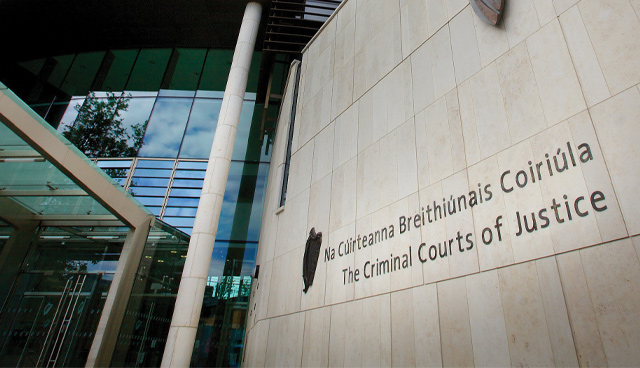Justice legislation priorities

In the context of the formation of the tri-party coalition and the agreed Programme for Government, across each of the Department of Justice and Equality’s two pillars, Civil Justice and Equality and Criminal Justice, there are a number of legislative priorities.
Within the Department of Justice and Equality’s functional model, each pillar has a several functions, one of which is legislation. As well as drafting primary and secondary legislation, the legislation function is responsible for creating and progressing bills through the Attorney General’s Office and the Oireachtas. Working both on Irish law and the transposition of EU and international law, the legislation function consults with relevant stakeholders and collaborates with other functions (for instance, governance and policy). This ensures that relevant implications are considered at each stage of the legislative process.
Across the pillars, the legislation function is led by assistant secretaries John O’Callaghan, Head of Civil Justice and Equality Legislation and Michael Flahive, Head of Criminal Justice Legislation.
Civil Justice and Equality
The Department has outlined 10 pieces of legislation and legislative reviews which are currently active within the Civil Justice and Equality legislation function and are at varying degrees of preparation or passage through the Oireachtas. Subject to government priorities, these are between one and two years from preparation to enactment. These 10 active pieces are:
- Defamation Law Review and Amending Bill;
- Property Services (Regulation) (Amendment) Bill;
- Personal Insolvency Review/Personal Insolvency and Bankruptcy Amending Bill;
- Future Reform of Licensing and Regulation of Gambling in Ireland;
- Gender Pay Gap Information Bill 2019;
- Judicial Appointments Commission Bill 2017;
- Criminal Justice (Legal Aid) Bill 2017;
- Adoptive Leave and Lactation Breaks;
- Disability (Miscellaneous Provisions) Bill 2016; and
- Proposed Irish Nationality and Citizenship Amendment Bill.
Criminal Justice
Meanwhile, within the Criminal Justice and Equality legislation function, there are several immediate priorities which incorporate the transposition of EU instruments, alongside Private Members’ Bills that may be restored and other priority areas. In addition, the Department has identified nine pieces of planned legislation in the medium-to-long-term.
One piece of legislation already enacted under the new Government is the Criminal Justice (Enforcement Powers) (Covid-19) Act 2020, which was signed into law in September 2020. The Act makes “exceptional provision, in the public interest and having regard to the manifest and grave risk to human life and public health posed by the spread of the disease known as Covid-19 and in order to mitigate, where practicable, the effect of the spread of that disease”.
Transposition of EU instruments
Each EU measure includes a date by which it must be implemented. This includes transposition into national law. Member states are then required to formally notify the European Commission when a measure has been given effect within their jurisdiction. Failure to implement the measure, transpose properly or to notify are grounds upon which the Commission can undertake infringement proceedings. In such circumstances, member states may be subject to significant financial penalty and suffer reputational damage.
In Ireland, the Department of Justice and Equality has 18 live infringements. Bills required to rectify these infringements include:
- Criminal Justice (Money Laundering and Terrorist Financing) (Amendment) Bill 2020;
- Criminal Justice (Theft and Fraud Offences) (Amendment) Bill 2019;
- Criminal Justice (Counterfeiting) Bill 2020;
- Criminal Justice (Mutual Recognition of Decision on Supervision Measures) Bill 2019; and
- Criminal Justice (Mutual Recognition of Custodial Sentences) Bill 2020.
Private Members’ Bills
Upon the dissolution of the Dáil, prior to a general election, bills which are in the process of enactment will lapse. Within the subsequent Dáil, outstanding bills can either be restored to the Order Paper or allowed to lapse. Bills which enjoy cross-party support are more likely to be restored. The Department of Justice has identified three Private Members’ Bills which may be subject to restoration as per their inclusion in the Programme for Government.
- Senator Pádraig Ó Céidigh’s Perjury and Related Offences Bill 2018: The Bill completed its passage through the Seanad in June 2019. A money message was issued by the then government and it completed the second stage in the Dáil in December 2019. The Bill was subsequently adopted as a Government Bill by the previous government.
- Deputy Brendan Howlin’s Harassment, Harmful Communications and Related Offences Bill 2017: In 2018, the then government agreed to support and amend the Bill and committee stage amendments are near completion for government approval.
- Senator Lynn Ruane’s Criminal Justice (Rehabilitative Periods) Bill 2018: The Bill was introduced to the Seanad in December 2018 and passed the Seanad committee stage in November 2019.
Priority areas
The Department has also identified several additional criminal justice priorities, of which the following are included in the Programme for Government.
- Smuggling of Persons Bill;
- hate speech and hate crime legislation;
- Optional Protocol to the UN Convention Against Torture (OPCAT);
- Police Powers Bill; and
- Criminal Procedure Bill.
In addition, the Review of protections for vulnerable witnesses in the investigation and prosecution of sexual offences (O’Malley Review) was also published in August 2020. Appointed in August 2018 and chaired by Tom O’Malley, the Working Group was tasked to “review and report upon the protections available for vulnerable witnesses in the investigation and prosecution of sexual offences” in the wake of the Belfast Rape Trial.
The 50 recommendations made by the Working Group are intended to ensure that “victims of sexual crime have access to information and advice from the time at which the offence was committed, that they will be kept informed of the progress of investigation, that they will be facilitated in giving their best evidence if called as witnesses and that they will be treated with respect and dignity throughout the entire process”.
Helen McEntee welcome the publication of the report, stating: “Developing an ambitious implementation plan is a priority for me as Minister for Justice.” Among the actions to be immediately prioritised is the drafting of legislation to provide for preliminary hearings to help avoid delay in sexual offences cases.
Planned legislation
The Department of Justice and Equality has also listed nine medium-to-long-term criminal justice legislation priorities.
- Criminal Justice (Community Sanctions) Bill: While the general scheme of a Bill was approved in 2014, it has not been prioritised for drafting. It will provide “a modern statement” of the law governing community sanctions and the role of the Probation Service.
- Criminal Justice (Passenger Name Records) Bill: The Bill is intended to comply with an EU Council commitment to extend an EU directive relating to external flights into the EU to EU internal flights.
- Criminal Justice (Terrorist Offences) Bill: The Bill will give effect to a 2017 EU directive aimed at combatting the ‘foreign terrorist fighter phenomenon’. A draft general scheme is being prepared.
- Cybercrime Bill: The Bill will give effect to outstanding elements of the Council of Europe Convention on Cybercrime (the Budapest Convention) enabling Ireland to ratify the 2001 Convention.
- European Arrest Warrant Act (Amendment) Bill: The Bill will amend the EAW Act and extradition legislation to improve its practical application.
- Explosives Bill: The Bill will repeal and replace the Explosives Act 1875 with a modern statutory framework for the control, manufacture, storage, importation, transport and supply of explosives.
- International Criminal Court (Amendment) Bill: The Bill give effect to the two Kampala amendments to the Rome Statute of the International Criminal Court made in 2010, including a definition of the crime of aggression.
- Sex Offenders (Amendment) Bill: The Bill will update the Sex Offenders Act 2001 following the 2010 review into the management of sex offenders.
- Transfer of Sentenced Persons (Amendment) Bill: The Bill will give effect to a 2016 Supreme Court judgement, amending the Transfer of Sentenced Persons Act 1995. The general scheme was approved by government in January 2019 and is currently with the Office of the Parliamentary Counsel (OPC).





